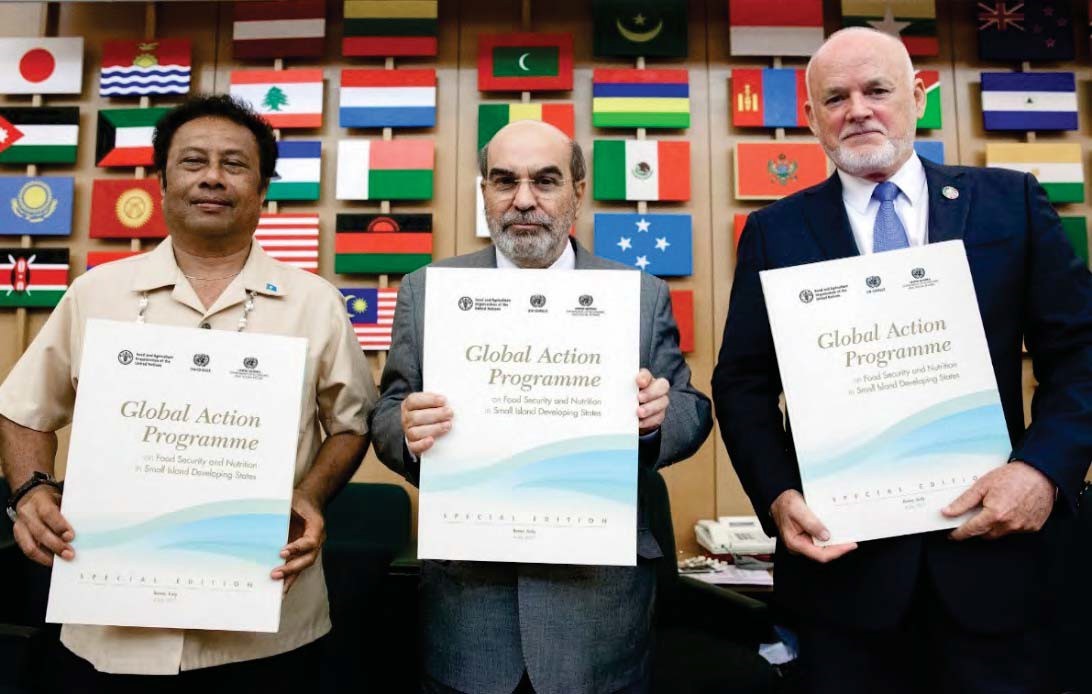![]()
The Cowrie – SIDS Times Magazine Fall 2017 Online Edition – Back to Table of Contents

04 July 2017, Rome, Italy – L to R: Tommy E. Remengesau, President of the Republic of Palau, FAO Director-General Jose Graziano da Silva and Peter Thomson, President of the 71st Session of the United Nations General Assembly
Addressing unique nutrition and climate change challenges for SIDS countries
Officially launched on the sidelines of the 40th Session of the FAO Conference on 4 July 2017, the Global Action Programme (GAP) on Food Security and Nutrition in Small Island Developing States (SIDS) provides an integrated, multi-stakeholder framework with which to address the unique but diverse food security and nutrition challenges faced by SIDS.
The GAP, set to be the guiding tool for implementing the SAMOA Pathway, focuses on three mutually reinforcing objectives and takes a multi-sectoral approach across all agricultural sectors – fisheries, forestry, livestock and crops: 1. Enabling environments for food security and nutrition; 2. Sustainable, resilient food systems that support healthy diets and nutrition and; 3. Empowered people and communities for improved food security and nutrition, with a focus on vulnerable groups
Focus on the SIDS
FAO has scaled up its work with SIDS in recent years including in areas aimed at improving the management and use of natural resources; promoting integrated rural development; and building resilience to extreme weather events.
Looking to emphasize opportunities for SIDS to promote sustainable development while boosting their food security and nutrition, during the recent Ocean Conference in New York, FAO committed to increase economic benefits to SIDS countries. By leveraging its Blue Growth Initiative through three specific regional SIDS projects, with approximately US$16 million in funding from FAO, SIDS countries can become better stewards of their marine resources. For example, people in many Pacific SIDS consume three to four times the global average of fish, a key source of animal protein. Promoting local food systems that deliver healthier ocean-based diets-in line with the GAP outcome 2.1.1., “Oceans and seas and their resources are sustainably managed and used for food security and nutrition”- would also improve sustainable use of natural resources, resilience and nutrition.
All relevant entities working on food security and nutrition issues in SIDS are encouraged to incorporate the GAP as a programmatic framework for ensuring that a coordinated and coherent set of actions is implemented for addressing the ongoing food security and nutrition challenges.